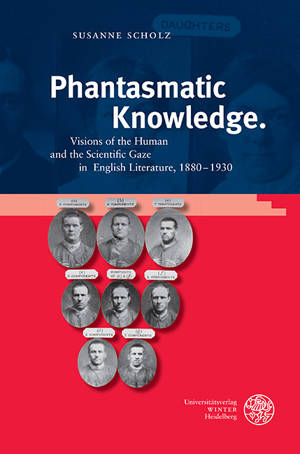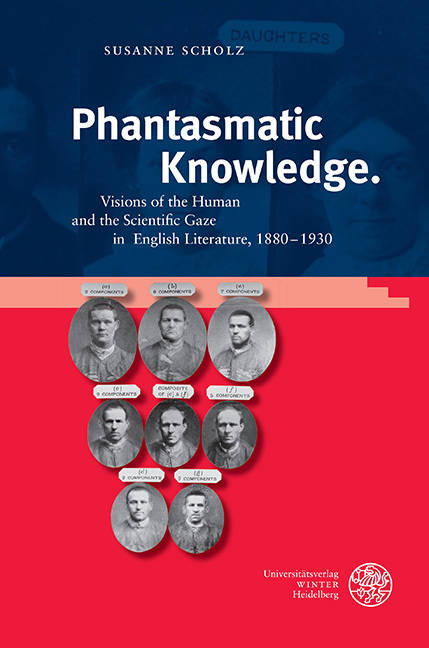
Door een staking bij bpost kan je online bestelling op dit moment iets langer onderweg zijn dan voorzien. Dringend iets nodig? Onze winkels ontvangen jou met open armen!
- Afhalen na 1 uur in een winkel met voorraad
- Gratis thuislevering in België vanaf € 30
- Ruim aanbod met 7 miljoen producten
Door een staking bij bpost kan je online bestelling op dit moment iets langer onderweg zijn dan voorzien. Dringend iets nodig? Onze winkels ontvangen jou met open armen!
- Afhalen na 1 uur in een winkel met voorraad
- Gratis thuislevering in België vanaf € 30
- Ruim aanbod met 7 miljoen producten
Zoeken
Phantasmatic Knowledge
Visions of the Human and the Scientific Gaze in English Literature, 1880-1930
Susanne Scholz
€ 24,95
+ 49 punten
Omschrijving
'Phantasmatic Knowledge' investigates changing anthropological visions as they were negotiated in late Victorian and early twentieth century literature. It starts from the assumption that in nineteenth century scientific discourse, a human being can only be accepted as fully human if it is visually perceived as human. One of the scientific genres to 'produce' and normalize man in the late nineteenth century is the case study, so the first part of the book analyses three notorious 'cases' of late Victorian London, Joseph Merrick, the so-called "Elephant Man", Jack the Ripper, and the 'Strange Case of Dr Jekyll and Mr Hyde'. Its second part provides readings of texts by Stevenson and Hardy, and traces the ways in which the emergence of photography created the conditions for a specific way of seeing which also impacted the techniques of literary representation. A final chapter on mummy fiction addresses ethical questions regarding the precarious status of the human as an object of knowledge.
Specificaties
Betrokkenen
- Auteur(s):
- Uitgeverij:
Inhoud
- Aantal bladzijden:
- 177
- Taal:
- Engels
- Reeks:
- Reeksnummer:
- nr. 436
Eigenschappen
- Productcode (EAN):
- 9783825361686
- Verschijningsdatum:
- 1/10/2013
- Uitvoering:
- Hardcover
- Formaat:
- Genaaid
- Afmetingen:
- 165 mm x 245 mm
- Gewicht:
- 438 g

Alleen bij Standaard Boekhandel
+ 49 punten op je klantenkaart van Standaard Boekhandel
Beoordelingen
We publiceren alleen reviews die voldoen aan de voorwaarden voor reviews. Bekijk onze voorwaarden voor reviews.











